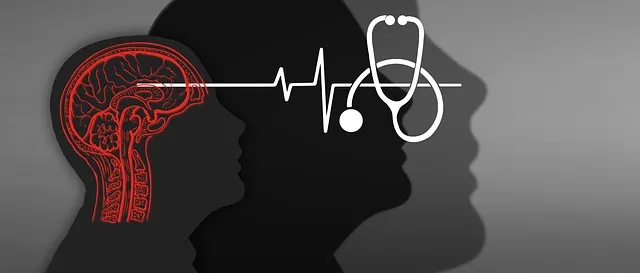Mental illness diagnoses in Littleton face challenges due to individual variations and cultural differences, impacting accuracy and sensitivity. To address this, Kaiser Permanente has launched a multi-faceted strategy combining advanced data analytics for precise assessments, educational initiatives like the Mental Wellness Podcast Series, and technology such as digital assessment tools and wearable devices. They also emphasize patient participation through support groups, educational programs, and self-awareness exercises to improve early detection and treatment planning, ensuring better mental health outcomes. This comprehensive approach, including burnout prevention and coping skills development, effectively answers "Litleton does Kaiser cover mental health" by enhancing diagnosis accuracy and promoting long-term wellness.
Mental illness diagnosis accuracy is paramount for effective treatment, yet challenges persist. This article explores current gaps in understanding mental health conditions and efforts to improve diagnostic accuracy, including innovative approaches from Kaiser Permanente. We delve into the integration of technology and its role in enhancing reliability, while highlighting the critical importance of patient support and education. Discover how Littleton does Kaiser cover mental health, examining strategies that could shape the future of mental healthcare.
- Understanding Mental Illness Diagnosis: Current Challenges and Gaps
- Kaiser Permanente's Approach to Enhancing Diagnosis Accuracy
- The Role of Technology in Improving Diagnostic Reliability
- Patient Support and Education: A Cornerstone for Effective Treatment
Understanding Mental Illness Diagnosis: Current Challenges and Gaps

Mental illness diagnosis faces several challenges today, primarily due to the complex nature of human emotions and behaviors. The current system often struggles to accurately identify conditions like anxiety disorders, which can significantly impact a person’s daily life. This is partly because symptoms vary widely between individuals, making it difficult to apply one-size-fits-all approaches. Additionally, healthcare providers face gaps in understanding unique cultural perspectives on mental health, affecting the accuracy and sensitivity of diagnoses.
Littleton does Kaiser cover mental health services, offering some relief for those seeking support. However, improving diagnosis accuracy requires more than just insurance coverage. It involves integrating innovative strategies like empathy-building techniques to enhance patient-provider relationships. Furthermore, encouraging open conversations about emotional regulation can aid in early detection and effective treatment planning, addressing the root causes of distress rather than merely treating symptoms.
Kaiser Permanente's Approach to Enhancing Diagnosis Accuracy

Kaiser Permanente has implemented a comprehensive strategy to enhance the accuracy of mental illness diagnoses, addressing a critical aspect of patient care. Their approach involves a multi-faceted initiative that leverages advanced technologies and evidence-based practices. By integrating sophisticated data analytics tools, Kaiser can now analyze patterns in patient records, helping clinicians identify subtle indicators of mental health conditions that might have been previously overlooked. This data-driven method allows for more precise assessments, especially in complex cases.
In addition to technological advancements, Kaiser Permanente prioritizes education and collaboration. They offer the Mental Wellness Podcast Series Production, a valuable resource that promotes self-care practices and emotional regulation among their members. Through this initiative, Kaiser aims to empower individuals with knowledge about mental health, encouraging proactive management of wellness. By combining advanced diagnostics with preventative measures like self-care promotions, Kaiser Permanente strives to improve overall mental health outcomes for its Littleton and beyond.
The Role of Technology in Improving Diagnostic Reliability

In the pursuit of enhancing mental illness diagnosis accuracy, technology plays a pivotal role. Digital tools and platforms are revolutionizing the way mental health professionals assess and diagnose patients, particularly in areas like Littleton where access to quality care is essential. Online assessment tools, for instance, offer a more comprehensive evaluation by leveraging advanced algorithms to analyze patient responses, providing initial insights that aid clinicians in making more informed decisions.
Additionally, technology facilitates continuous monitoring through wearable devices and mobile applications that track vital signs and user-reported symptoms, offering real-time data for emotional well-being promotion techniques. Features like these are especially beneficial for managing conditions such as depression prevention and mood management, ensuring timely interventions. With Kaiser’s comprehensive mental health coverage, these technological advancements hold promise for improving diagnostic reliability and enhancing patient outcomes in communities like Littleton.
Patient Support and Education: A Cornerstone for Effective Treatment

Mental illness diagnosis accuracy is significantly enhanced when patients are actively involved in their treatment process. Patient Support and Education plays a pivotal role in this regard. By providing comprehensive resources, support groups, and educational programs, healthcare providers empower individuals to better understand their conditions. This fosters self-awareness exercises, enabling patients to recognize symptoms early on, which is crucial for timely intervention.
In the context of Littleton and Kaiser’s mental health coverage, these efforts are further amplified. The integration of Burnout Prevention Strategies for Healthcare Providers ensures that medical professionals can maintain a high level of care. Coping Skills Development programs equip both providers and patients with tools to navigate challenges, ultimately enhancing treatment outcomes. This holistic approach not only improves diagnosis accuracy but also promotes long-term mental wellness.
Mental illness diagnosis accuracy is a complex issue, with many factors contributing to current challenges. However, efforts like Kaiser Permanente’s innovative approach and the integration of technology offer promising solutions. By prioritizing patient support and education, as highlighted by Littleton’s focus on mental health coverage, we can enhance diagnostic reliability and improve overall treatment outcomes. These strategies collectively work towards ensuring more accurate, timely, and effective mental health care for all.






